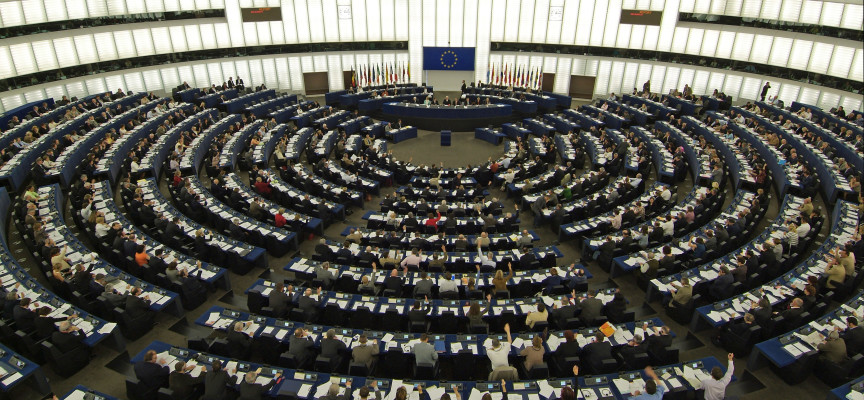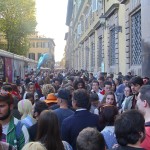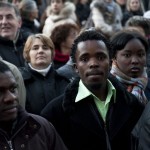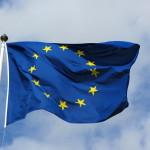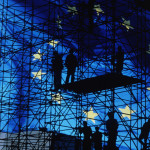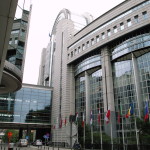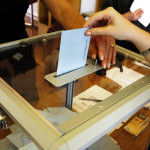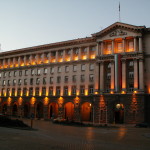The reason being the current crisis. An unprecedented crisis that “has tested relations between member States, has questioned the founding principle of solidarity within the Union and has brought about a rise in poverty for a great number of citizens, in addition to having jeopardized the future prospects of many young Europeans”. This is a big deal. As a matter of fact, according to the commission of EU bishops’ conferences “the situation is dramatic, in many cases even tragic”.
Hence, realism: the kind of realism that comes from being in touch with people’s lives and concrete needs on a daily basis.
It is with this kind of realism that bishops take a stance and are calling for “the European project not to be jeopardized or discarded under current pressures”. However, something needs to be changed: this is no time for rhetoric.
Consequently, the Comece document focuses on principles, and gives indications regarding policies.
Hope and temperance are mentioned: i.e. a culture of moderation and subsidiarity, because the Union is “one single family of nation States”, and each one has – and must preserve – its own “ancient traditions”. A single thought, based on economic and technocratic considerations, is also being applied to families and life in general, only leading to more euroskepcticism and protests. Identity is a very serious matter, especially at a time of crisis. Bishops also remind us of the importance of solidarity “between nations, regions and population groups”, respect for dignity and human life, integration, openness and sustainability.
They have simple but clear words to speak about religious freedom and Sunday. Certainly, it seems strange that, in the 21st century, in one of the most advanced regions on the planet, religious freedom must explicitly be mentioned. Without being overly critical, bishops simply remind us that religious freedom “includes the right to display our beliefs in public”. We know that, on a number of sensitive issues, the Church’s position is different from a certain kind of dominant thought.
But this is actually the point. This gnawing crisis, that is redefining hierarchies and processes – because that are also people who make money in this crisis – is erasing deeply-rooted certainties that are linked to a specific view of modernization. And this compels everyone to face reality and their identity, in addition to the “rise in poverty” at all levels, not only salary-wise.
Answers can be given only if we start from here. The Comece document – with its clear, sobering, confident and forward-looking message – calls for greater participation on our part, by reminding us of what is at stake. We need new answers, but they must necessarily take our deepest roots and principles into account.
Partecipare, prima di tutto. E cioè dibattere, interrogarsi e misurarsi sulle prospettive di un’Unione Europea che “è a un punto di svolta” e andare a votare. Il messaggio dei Vescovi della Comece sottolinea il fatto che, forse per la prima volta, le elezioni del Parlamento europeo hanno una posta.
Perché c’è la crisi. Una crisi inedita, che “ha messo alla prova le relazioni tra gli stati membri, ha messo in discussione il principio fondante della solidarietà all’interno dell’Unione e ha portato con sé un incremento della povertà per un gran numero di cittadini, oltre ad aver compromesso le future prospettive di molti tra i nostri giovani”. Scusate se è poco. Insomma, per la commissione dell’episcopato di paesi dell’Unione “la situazione è drammatica, per molti addirittura tragica”.
Realismo dunque, il realismo che viene dal contatto quotidiano con la vita e i bisogni concreti della gente.
Con questo realismo i vescovi prendono posizione e chiedono che “il progetto europeo non venga messo a rischio o abbandonato sotto le attuali costrizioni”. Tuttavia, bisogna cambiare qualcosa: non è tempo di retoriche.
Ecco allora il richiamo ai principi e alcune indicazioni sulle politiche.
Si parla di speranza, di temperanza, cioè di una cultura di moderazione, di sussidiarietà, perché l’Unione è “un’unica famiglia di stati-nazione”, ciascuno dei quali ha e deve mantenere le proprie “risalenti tradizioni”. Un certo pensiero unico a base economico-tecnocratica, applicato anche alla famiglia e alla vita, alimenta ulteriormente euroscetticismo e protesta. L’identità è una cosa molto seria, soprattutto in tempi di crisi. I vescovi ricordano poi la solidarietà “tra le nazioni, le regioni e i gruppi della popolazione”, il rispetto della dignità e della vita umana, l’integrazione, l’accoglienza e la sostenibilità.
Hanno poi parole semplici e chiare sulla libertà religiosa e sulla domenica. Certo può sembrare strano che, in pieno ventunesimo secolo, in una delle aree più avanzate del pianeta, si parli esplicitamente di libertà religiosa. Senza polemiche i vescovi si limitano a ricordare che la libertà religiosa “include il diritto di manifestare le proprie convinzioni in pubblico”. Perché, su non pochi temi sensibili, la posizione della Chiesa è ormai diversa da quella di un certo pensiero dominante.
Ma proprio qui è il punto. La crisi, che morde e ridisegna gerarchie e processi, perché c’è anche chi dalla crisi ci guadagna, porta via radicate certezze di una certa idea di modernizzazione. E costringe tutti a misurarsi con la realtà e con l’identità. Oltre che con “incremento della povertà” a tutti i livelli, non solo stipendiale.
Solo partendo da qui si possono dare delle risposte. Chiaro nei riferimenti, misurato nei toni, fiducioso nelle prospettive, il documento della Comece, invitando alla partecipazione, ricorda la posta in gioco. Servono risposte nuove, ma tali possono essere solo se tengono conto di radici e principi, chiari.
Francesco Bonini
Latest posts by Francesco Bonini (see all)
- Realism and identity - 25 marzo 2014

